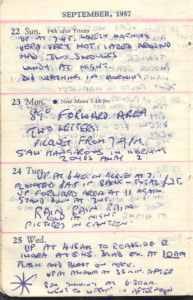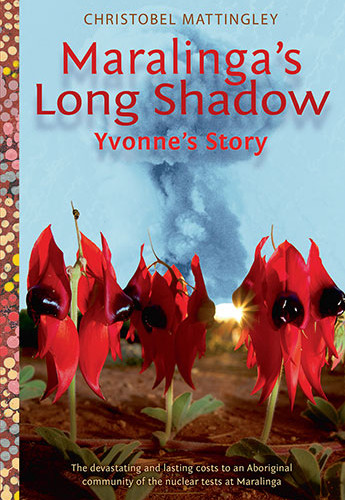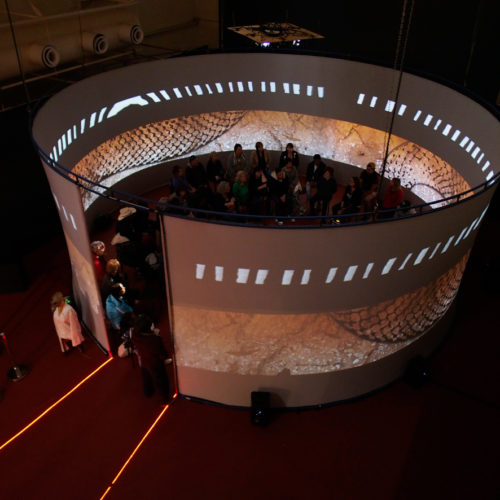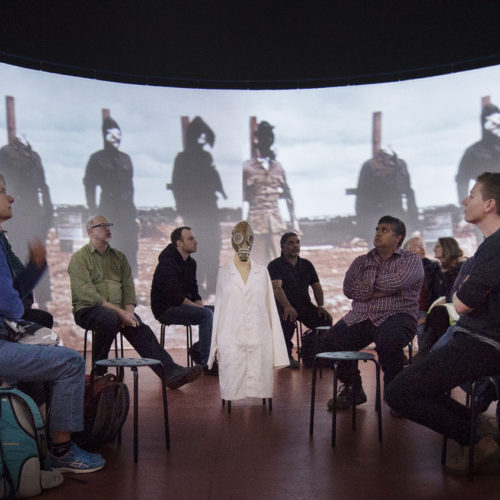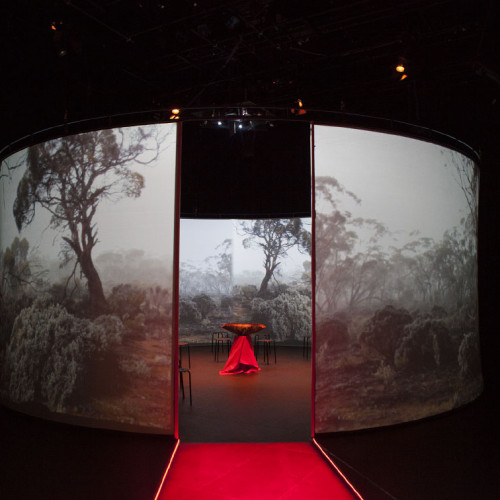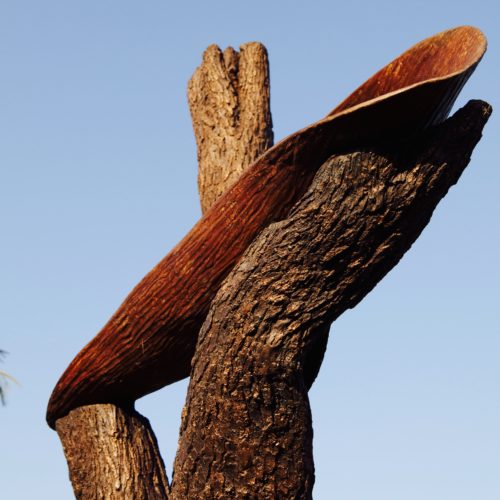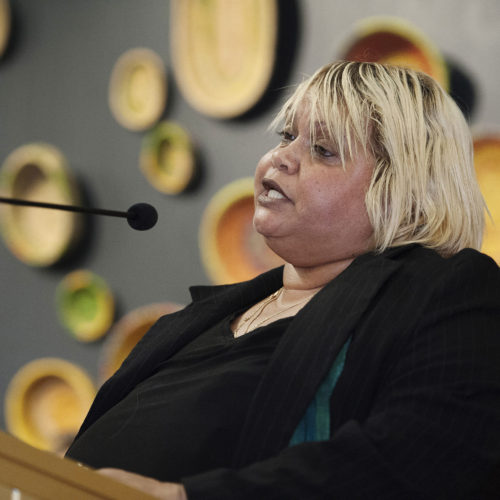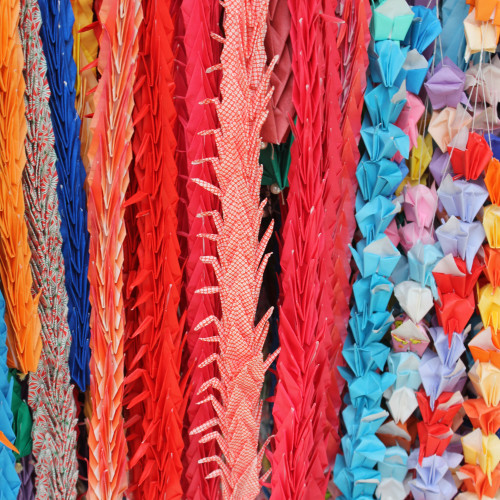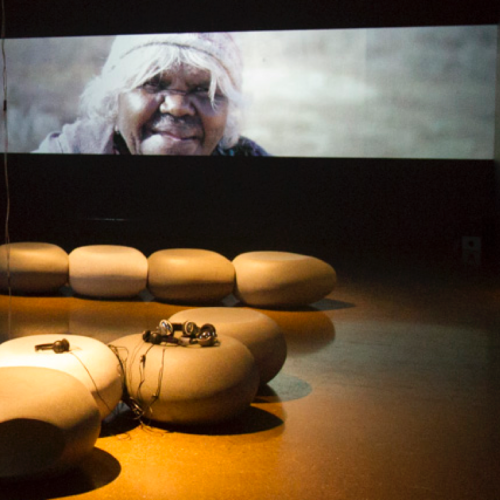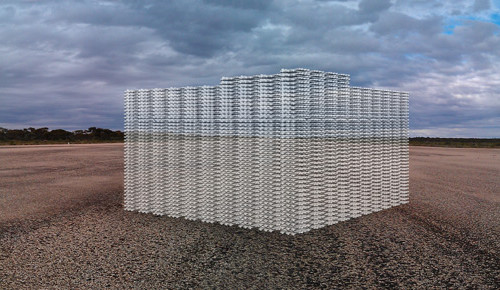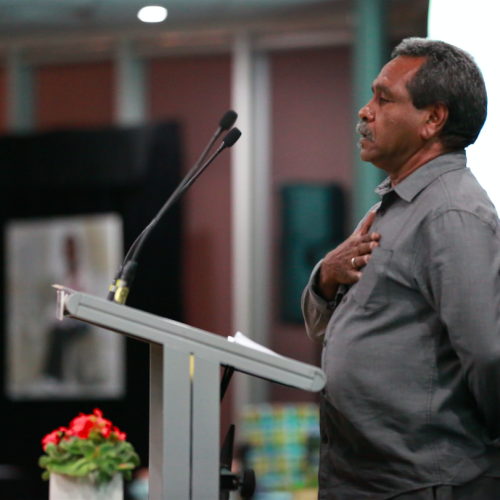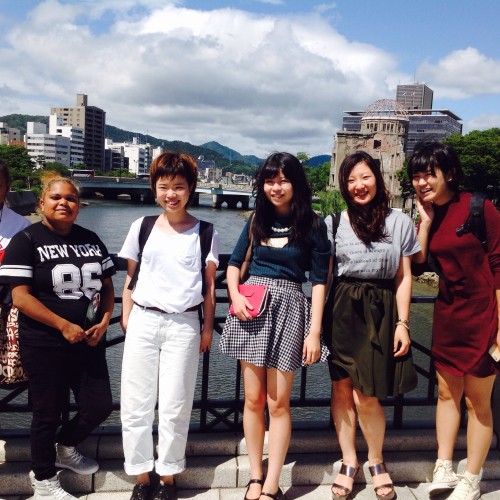-
Maralinga's Long Shadow: Yvonne's story wins NSW Premier's Award
- 8 years ago
- The annual NSW Premier's Awards for History, presented in Sydney on Friday 1 September 2017, saw one of our partnership projects honoured, when "Maralinga's Long Shadow: Yvonne's Story" took out the Young People's Hi[...]
Thinking about Nuclear Futures
Research and Publication
For Nuclear Futures there is an academic stream involving seminars and/or conferences, and publications. This is part of ‘READ’, our program for integrating Reflection, Evaluation, Analysis and Documentation – through activities involving communities, artists and academics. We will produce website material, films and videos, media coverage and written reports – with analysis that also emerges through academic-style conferences and publications.
Our academic partners and collaborators will take a central leadership role in the Analysis element of READ. However, all participants, artists and academics will take some part in reflecting, evaluating, analysing or documenting.
In terms of themes for analysis, the Nuclear Futures project brings together streams of theory and practice, from theatre to activism, to wider social movements and politics, to memory, loss, survival, and histories of imperialism and displacement. It is about utopian and dystopian futures, capturing important historical developments in Australia, the United Kingdom, Japan, the United States, and Pacific nations. The stories of atomic survivors are too often neglected and ignored, glossed over and obscured, even purposefully recast or excluded.
Multiple, dynamic and diverse arts practices have driven the project so far, alongside scholarship from institutions in several countries. It is now time for those of us seeking to make sense of the research side to take stock and ask: how can we bring together the nuclear futures projects with the theoretical and wider academic implications of this work?
Areas of analysis might include:
- Memory and narrative
- Arts-Science interactions
- The history of military and civil nuclear programs
- Imperialism, the Cold War, and other key historical dimensions
- Wastes and contaminated sites
- Health and radiation impacts
- The role of the arts (and of community-based arts)
- Art, protest, and disruption
- Gift theory and reciprocity
- Justice and the arts
- Resilience and survival
- Eco-criticism
- Future Studies
Readers of this web page are invited to consider taking part in activities. As Nuclear Futures develops, we will post news of events, especially seminars and publication opportunities.
Here are our initial ideas for a staged program
Phase 1: Description
Work that is descriptive, bringing to light hidden voices, essentially ‘testimonials’. Arts projects by our communities and others as a jumping off point for an ‘open conversation’ around nuclear themes. This will inform some preliminary interpretation of atomic survivor stories for phase 2, below.
- A small-scale seminar (in person or virtual) in 2015, with a call for papers initially from those who are working within the Nuclear Futures community-based projects, and our affiliated artists and academics.
- The seminar can lead to our first book proposal. The book would constitute streamlined documentation of projects with a history of how arts workers have addressed the atomic age. A suggestion for the working title is: Exposing the nuclear future: creative arts and the stories of atomic survivors.
Phase 2: Analysis
More conceptual work, around themes as listed above.
- Phase 2 could involve either our own conference for 2016, with our own papers and papers from a broader call for papers.
- Alternatively, we could aim to create a sub-theme in other conferences. Ideas welcome!
- A second book proposal would be a publication arising from the conference or conference sub-stream. A working title could be Art and the Atomic Bomb: Understanding our shared nuclear futures.
Next Steps
- As a first response, we invite comment and suggestions about the above summary plan.
- We also invite people to nominate to take key roles in developing the program of research development and publication.
- We will review ideas at the end of October 2014, and start the ball rolling then.
Replies to
Paul Brown
Creative Producer
Nuclear Futures
